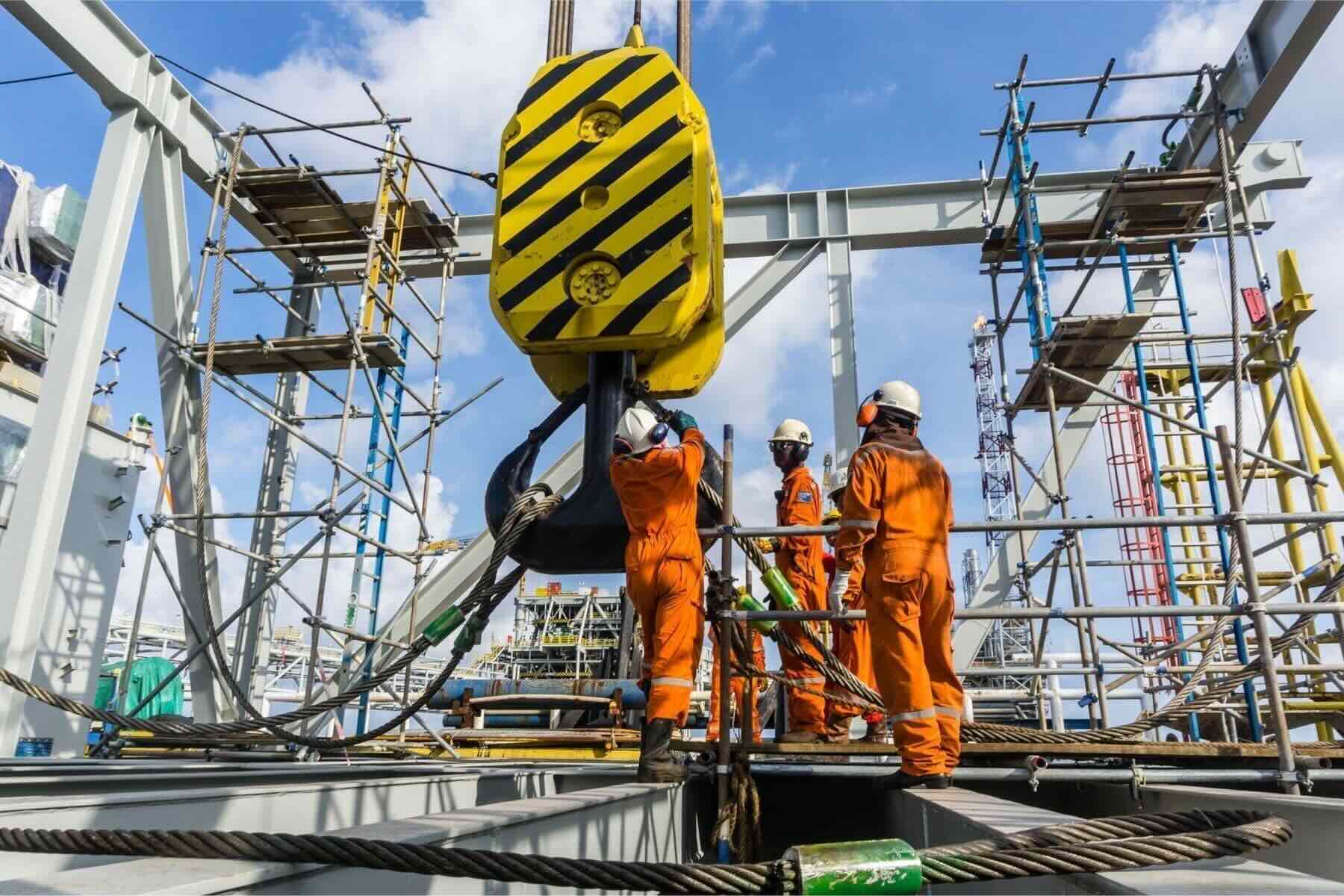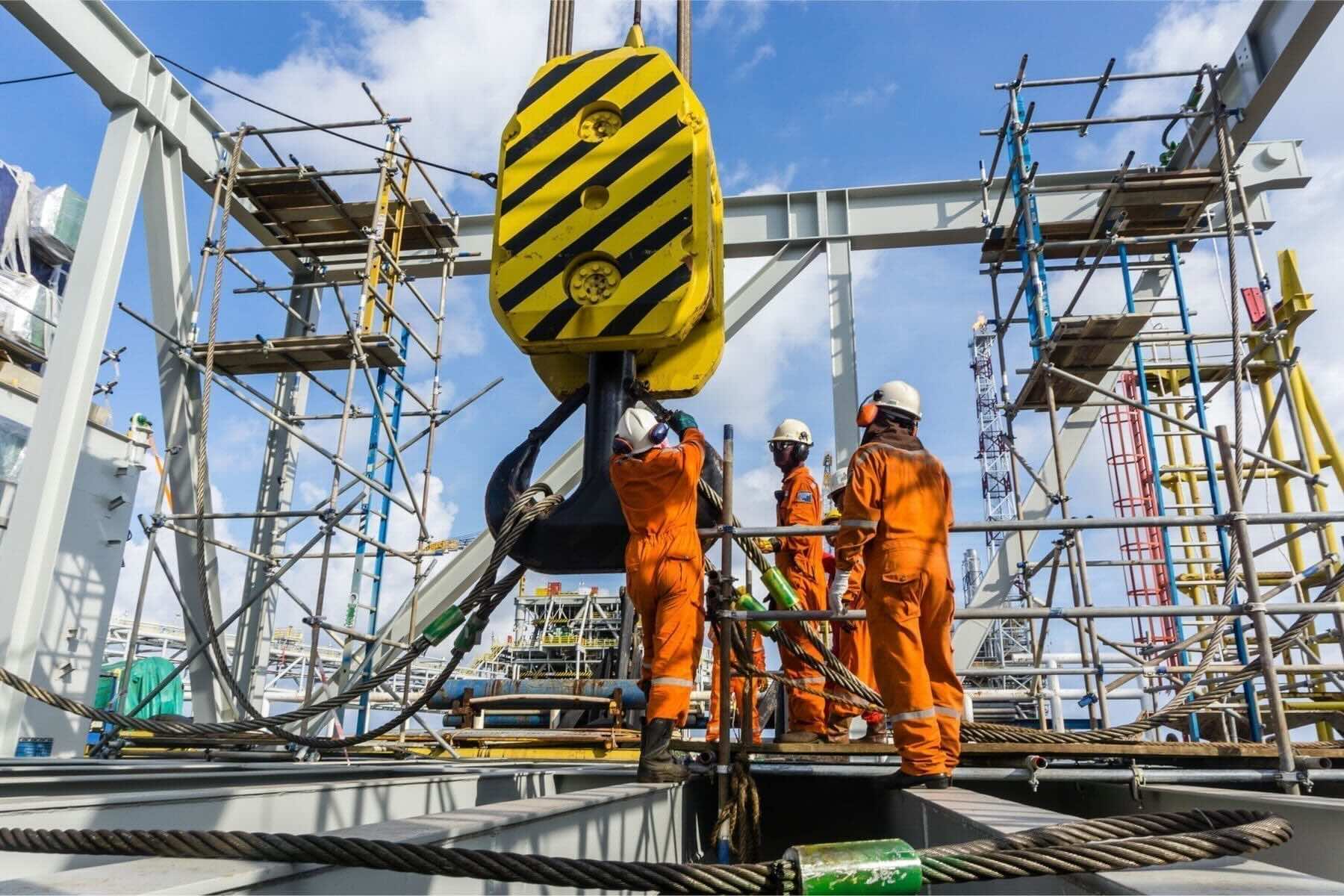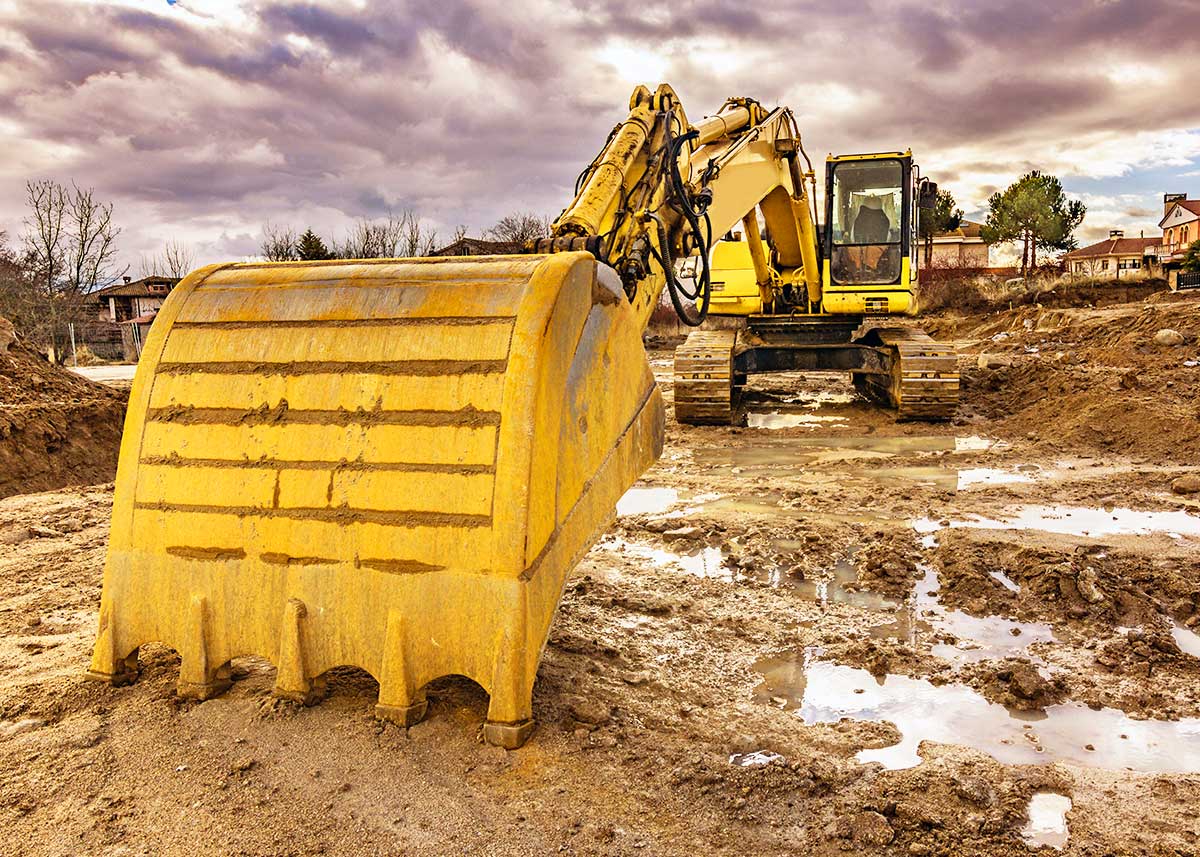Home>diy>Building & Construction>Why You Should Work In Construction


Building & Construction
Why You Should Work In Construction
Modified: August 28, 2024
Discover the benefits of working in the building construction industry. Gain valuable skills, competitive wages, and endless opportunities for growth. Start your career in construction today!
(Many of the links in this article redirect to a specific reviewed product. Your purchase of these products through affiliate links helps to generate commission for Storables.com, at no extra cost. Learn more)
Introduction
Are you considering a career change or wondering which industry to pursue? Look no further than the construction industry. With its stability, competitive salaries, dynamic work environment, and opportunities for growth, construction offers a promising career path that is often underrated.
Construction is a vital sector that involves the planning, designing, and building of structures, including residential buildings, commercial complexes, infrastructure projects, and more. It is a diverse field that encompasses various trades and specializations, offering a wide range of career options for individuals with different skill sets and interests.
In this article, we will explore why you should consider working in the construction industry and how it can provide you with a fulfilling and rewarding career. From job stability and competitive salaries to opportunities for growth and development, let’s take a closer look at the numerous advantages that working in construction can offer.
Key Takeaways:
- Construction offers job stability, competitive salaries, and diverse career paths. It provides a dynamic work environment, opportunities for growth, and a chance to contribute to community development.
- Working in construction fosters essential skills, job satisfaction, and a profound sense of accomplishment. It allows individuals to physically see the impact of their work and leaves a lasting legacy in the communities they serve.
Read more: Why Work In Construction
Job Stability and Demand
One of the significant advantages of working in the construction industry is the job stability it offers. The demand for construction professionals remains consistently high, regardless of economic fluctuations. Whether it’s constructing new buildings, renovating existing structures, or infrastructure development projects, there is always a need for skilled construction workers.
Infrastructure is the backbone of any society, and as the population grows, so does the demand for new buildings and infrastructure. This means that construction workers are always in demand, ensuring a steady stream of employment opportunities. Whether you choose to work as a carpenter, electrician, plumber, or project manager, your skills will be in high demand.
Additionally, construction jobs are less susceptible to outsourcing or automation. Since most construction work requires a physical presence, it remains primarily a local industry. This provides a level of job security and makes the construction industry a reliable option for those seeking stable employment.
In recent years, there has been a growing focus on sustainable and green construction practices. This has created a demand for construction professionals with expertise in eco-friendly building materials and energy-efficient designs. As the world moves towards sustainability, this niche specialization within the construction industry offers even more job stability.
Overall, the construction industry’s consistent demand and job stability make it an attractive option for individuals seeking long-term career prospects.
Competitive Salary and Benefits
When it comes to working in the construction industry, competitive salaries and comprehensive benefits packages are a significant advantage. Construction professionals are often well-compensated for their skills and expertise, making it a rewarding career path in terms of financial stability.
The construction industry recognizes the importance of skilled workers and offers competitive wages to attract and retain top talent. Depending on your role and experience, you can expect to earn a competitive salary that reflects your qualifications and the demand for your skills.
In addition to competitive salaries, the construction industry often provides comprehensive benefits packages. These packages may include health insurance, retirement savings plans, paid time off, and opportunities for career advancement.
Furthermore, many construction companies offer additional incentives such as performance bonuses, profit-sharing programs, and reimbursement for training and education. These benefits not only boost your overall compensation but also provide opportunities for personal and professional growth.
It’s important to note that salaries in the construction industry vary based on factors such as location, experience level, and specific trade. For example, specialized trades like electricians and plumbers tend to earn higher salaries due to the demand and expertise required for their roles. However, even entry-level positions in construction can offer competitive wages that surpass those of other industries.
Overall, the combination of competitive salaries and comprehensive benefits makes working in construction financially rewarding and attractive for individuals seeking long-term stability and financial well-being.
Opportunities for Growth and Advancement
The construction industry offers abundant opportunities for growth and advancement, making it an ideal career choice for individuals who are ambitious and looking to progress in their professional lives.
One of the primary reasons for the vast potential for growth in construction is its hierarchical structure. Starting from entry-level positions, such as a laborer or apprentice, individuals can work their way up the ladder by gaining experience and advancing their skills.
As you gain experience and develop specialized skills, you can move into supervisory or managerial roles, overseeing projects and leading teams. Many construction professionals eventually become project managers, estimators, or even start their own construction businesses.
Furthermore, the construction industry offers various training and certification programs that enable individuals to acquire new skills and enhance their expertise. These programs provide opportunities to learn about new technologies, building practices, and safety regulations, ultimately expanding your knowledge and marketability.
With the ever-evolving nature of the industry, there is always room for growth and advancement. As you gain experience and demonstrate your expertise, you can take on more complex projects, work with high-profile clients, and even specialize in niche areas of construction.
Additionally, construction projects often require collaboration with professionals from different disciplines, such as architects, engineers, and interior designers. This presents opportunities to learn from experts in other fields and broaden your understanding of the construction industry as a whole.
Overall, the construction industry provides a fertile ground for growth and advancement, allowing individuals to continually develop their skills, climb the career ladder, and achieve their professional goals.
Hands-On and Dynamic Work Environment
If you thrive in a hands-on and dynamic work environment, the construction industry is the perfect fit for you. Unlike desk-bound jobs, working in construction allows you to be actively involved in creating and building tangible structures.
Construction work involves a wide range of activities, from laying foundations and framing to installing electrical systems and finishing touches. Whether you are a carpenter, mason, or electrician, you will have the opportunity to work with your hands and see the concrete results of your labor.
Moreover, the construction industry offers a dynamic work environment. No two construction projects are the same, which means you will encounter new challenges and opportunities with each job. From residential buildings to commercial complexes and infrastructure projects, you will gain exposure to diverse construction projects with varying scopes and complexities.
Working in construction also means being part of a team. Collaboration and teamwork are essential for successful project completion. You will have the chance to work with other construction professionals, such as architects, engineers, and fellow tradespeople, fostering a sense of camaraderie and shared achievement.
The dynamic nature of construction work also means that you will be constantly learning and adapting. New technologies, building materials, and construction techniques are continuously being introduced to the industry. This requires construction professionals to stay up-to-date with the latest developments and continuously develop their skills, ensuring their work is efficient, safe, and of the highest quality.
The hands-on and dynamic work environment of construction provides a sense of excitement and fulfillment. Each day brings new challenges, opportunities for problem-solving, and the satisfaction of seeing a project come to life. If you enjoy a fast-paced, ever-changing work environment, the construction industry offers an ideal career path.
Tip: Consider gaining experience in the construction industry through internships or apprenticeships to learn valuable skills and make connections for future job opportunities.
Read more: Why You Should Clean Your Gutters
Variety of Trades and Specializations
The construction industry offers a plethora of trades and specializations, providing individuals with a wide range of career options to suit their interests and skills.
From carpentry and plumbing to electrical work and masonry, there are numerous trades within the construction industry. Each trade requires specific knowledge and expertise, making them highly specialized fields.
If you enjoy working with wood and creating structures, carpentry may be the perfect fit for you. Carpenters construct, install, and repair different wooden elements of a building, such as frameworks, walls, and furniture.
On the other hand, if you have a knack for handling piping systems, plumbing could be an appealing career choice. Plumbers install and maintain plumbing systems in buildings, including water supply, drainage, and heating systems.
Electrical work offers yet another specialized field within construction. Electricians are responsible for installing and maintaining electrical systems, ensuring that buildings are properly wired and equipped to handle electricity safely and efficiently.
These trades are just a few examples of the diverse range of specializations available within the construction industry. Other trades include HVAC technicians, ironworkers, painters, and more.
Moreover, individuals can choose to specialize even further within a specific trade. For instance, a carpenter may specialize in cabinetry or furniture making, while an electrician may specialize in renewable energy systems or commercial installations.
Having a variety of trades and specializations in the construction industry means that individuals can choose a career path that aligns with their interests and strengths. Whether you enjoy working outdoors, working with your hands, or have a passion for specific materials and techniques, there is a trade and specialization that suits you.
The abundance of trades and specializations within the construction industry ensures that there is always a demand for skilled professionals in various areas. This opens up opportunities for individuals to find their niche, develop expertise, and pursue fulfilling and rewarding careers.
Building and Contributing to Communities
One of the most fulfilling aspects of working in the construction industry is the opportunity to contribute to the development and improvement of communities. As a construction professional, you play a vital role in building the infrastructure and structures that shape the places where people live, work, and thrive.
Every construction project has the power to transform a community. From constructing affordable housing units to building schools, hospitals, and commercial spaces, these projects have a lasting impact on the quality of life for residents.
Working on community-based projects allows construction professionals to witness the positive impact their work has on individuals and society as a whole. It’s a rewarding feeling to know that the buildings you have helped construct are providing safe and comfortable spaces for people to live, learn, work, and enjoy their lives.
In addition to physical structures, the construction industry also contributes to the improvement of infrastructure. Roadways, bridges, and other transportation systems play a crucial role in connecting communities and facilitating economic growth. By constructing and maintaining these vital connections, construction professionals contribute to the overall development and connectivity of regions.
Furthermore, the construction industry often offers opportunities to engage in community service projects. This could involve volunteering your skills and expertise to help with community initiatives, such as constructing community centers, renovating public spaces, or participating in disaster relief efforts.
By actively participating in community-based projects and initiatives, construction professionals can see the tangible difference they make in people’s lives. This sense of making a positive impact enhances the overall satisfaction and fulfillment derived from working in the construction industry.
Whether you are building homes for families, constructing schools for children, or improving infrastructure for the benefit of all, the construction industry allows you to contribute to the betterment of communities and leave a lasting legacy in the places you work.
Developing Essential Skills
Working in the construction industry provides individuals with the opportunity to develop essential skills that are highly valued in the workforce. These skills go beyond the technical knowledge required for specific trades and are transferable to various professional and personal endeavors.
One of the key skills that construction professionals develop is problem-solving. Construction projects often present unexpected challenges and obstacles that require effective problem-solving skills to overcome. Whether it’s finding solutions to design issues, adjusting to changing conditions, or resolving conflicts, construction professionals learn to think critically and creatively to find the best solutions.
Communication skills are also crucial in the construction industry. As a construction professional, you will collaborate with architects, engineers, clients, and fellow tradespeople. Effective communication ensures that everyone is on the same page, promotes teamwork, and facilitates smooth project execution.
Construction work also cultivates strong teamwork and collaboration skills. Each project requires coordination and cooperation with other professionals, and the ability to work well in a team environment is essential. Construction professionals learn to work harmoniously with diverse teams, building relationships and fostering a productive working environment.
Attention to detail is another skill that is honed in the construction industry. Whether it’s following blueprints, ensuring precise measurements, or maintaining high-quality standards, construction professionals understand the importance of paying attention to even the smallest details. This attention to detail translates into producing work that is accurate, precise, and of the highest quality.
Additionally, construction work often requires individuals to be adaptable and flexible. Construction projects can be dynamic, with changes in plans, unexpected delays, and evolving circumstances. Building professionals learn to adapt to these changes, adjust their strategies, and remain flexible in order to successfully complete projects.
Construction professionals also develop strong time management and organizational skills. With multiple tasks, deadlines, and priorities, efficient time management is crucial. Construction work requires individuals to plan and prioritize their work effectively to meet project schedules and deliver results in a timely manner.
Lastly, construction work instills a strong work ethic and a sense of discipline. Construction projects often have tight deadlines and require dedicated efforts to meet them. The commitment, perseverance, and discipline needed to complete projects on time and within budget are qualities that translate into success in any field.
Overall, the construction industry offers a unique platform for individuals to develop a wide range of essential skills that are highly valuable and transferable to other professional and personal endeavors.
Job Satisfaction and Sense of Accomplishment
Working in the construction industry provides a unique sense of job satisfaction and a profound feeling of accomplishment. Few other professions allow individuals to physically see the fruits of their labor and leave a lasting impact on the world around them.
Construction professionals take pride in their work, knowing that they have played a vital role in bringing a project to life. Whether it’s a residential building, a commercial complex, or an infrastructure project, each completed construction represents a tangible result of their dedication and expertise.
Seeing the transformation from an empty plot of land to a thriving structure gives construction professionals a deep sense of accomplishment. They can point to buildings and say, “I built that,” knowing that their hard work has shaped the environment and improved the lives of people in their communities.
Furthermore, the construction industry offers a unique sense of job satisfaction through the variety of challenges and tasks it presents. Each project is different, bringing new opportunities to learn and grow. From problem-solving to overcoming obstacles, construction professionals are constantly faced with new challenges that require their expertise and resourcefulness.
The dynamic nature of construction work keeps professionals engaged and motivated. The ability to continually learn and improve skills adds to the satisfaction of the job and provides a sense of personal and professional growth.
In addition to the sense of accomplishment derived from completed projects, construction professionals also experience satisfaction in working collaboratively as a team. The construction industry fosters a strong sense of camaraderie and collective achievement. The shared goal of creating something meaningful and enduring creates a strong bond among team members.
Working in construction also offers the opportunity to positively impact the lives of others. Whether it’s building homes for families, improving infrastructure for communities, or contributing to the growth of society, construction professionals can find fulfillment in knowing that their work makes a difference.
Finally, the tangible and visible nature of construction work provides an immediate sense of achievement. Unlike some professions where the outcomes are intangible or take time to materialize, construction professionals can see the results of their hard work firsthand, reinforcing their sense of accomplishment and satisfaction.
Overall, the construction industry offers a unique combination of job satisfaction and a profound sense of accomplishment. The ability to see the impact of one’s work, the variety of challenges encountered, and the sense of camaraderie fostered in construction make it a fulfilling and rewarding career choice.
Read more: Why Should You Get Synthetic Grass
Conclusion
The construction industry presents a multitude of reasons why it is an excellent career choice. From job stability and competitive salaries to opportunities for growth and advancement, the construction industry offers a promising future. The hands-on and dynamic work environment, along with the variety of trades and specializations, provides individuals with the chance to pursue their passions and develop essential skills.
Working in construction not only allows individuals to contribute to the development and improvement of communities but also provides a deep sense of job satisfaction and accomplishment. The ability to physically see the results of one’s work and leave a lasting impact on the world around them is unmatched in other professions.
With its consistent demand for skilled professionals, the construction industry offers job stability in both prosperous and challenging economic times. The potential for growth and advancement keeps individuals motivated and engaged, presenting opportunities to learn new skills, take on leadership roles, and achieve their professional goals.
Whether it’s constructing homes, commercial buildings, or infrastructure projects, construction professionals have the unique ability to shape the places where people live, work, and thrive. The construction industry’s contribution to building and connecting communities is invaluable and offers a rewarding sense of purpose.
Overall, a career in construction is a pathway to a fulfilling and rewarding future. It combines the satisfaction of tangible results, the opportunity for personal and professional growth, and the chance to contribute to the betterment of communities. If you are seeking a stable and rewarding career that combines creativity, hands-on work, and a lasting impact, look no further than the construction industry.
Frequently Asked Questions about Why You Should Work In Construction
Was this page helpful?
At Storables.com, we guarantee accurate and reliable information. Our content, validated by Expert Board Contributors, is crafted following stringent Editorial Policies. We're committed to providing you with well-researched, expert-backed insights for all your informational needs.














0 thoughts on “Why You Should Work In Construction”